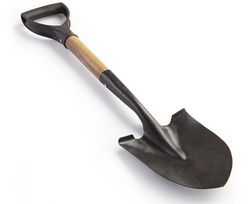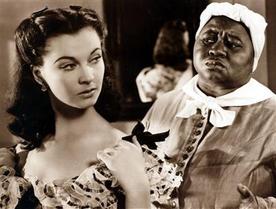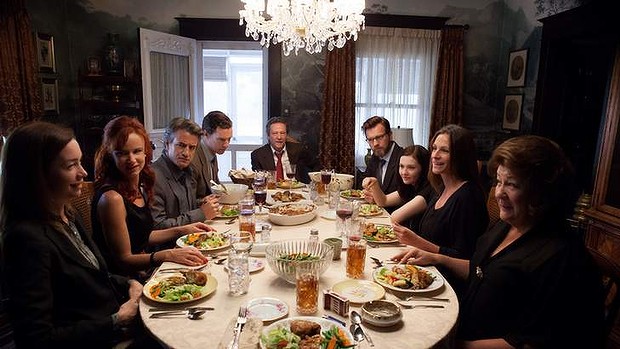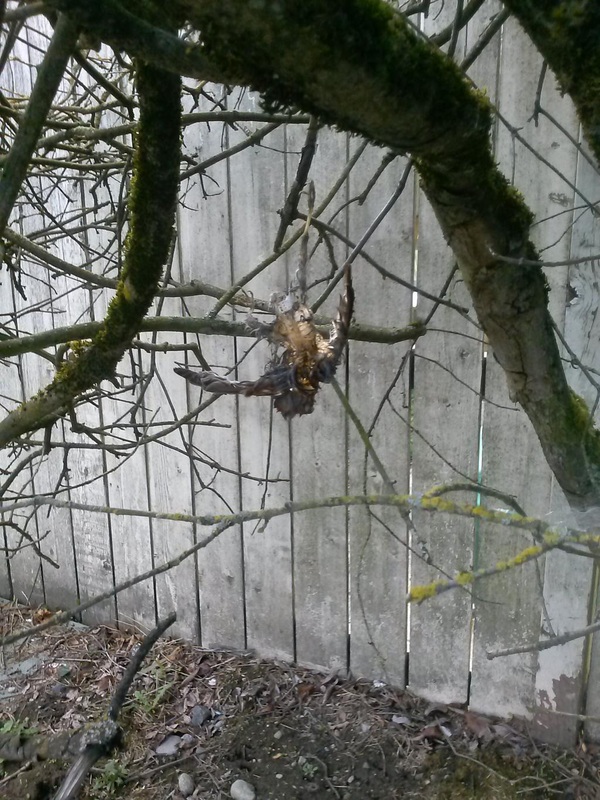 Misty Upham, 1982-2014
Misty Upham, 1982-2014 A caveat: In fairness to the playwright, it appears that the screenwriters reduced the role of Johnna Matevata, the caregiver, considerably. It may have been that the play was less offensive. I understand that the selling of film rights rarely, if ever, entails rights of approval for the author.
 A shovel, because I could not find any shots from this scene.
A shovel, because I could not find any shots from this scene. I have a sneaking suspicion that the depiction of the family’s behavior was an example of “hipster racism.” And, yes, hipster racism is a thing. Here’s what Wikipedia has to say about it:
"Hipster racism… is described as the use of irony and satire to mask racism. It is the use of blatantly racist comments in an attempt to be controversial and edgy. Its irony is established in a somewhat post-racial belief that blatant expressions of genuine racism are no longer taken seriously and are an outdated way of thinking, thereby making the use of such overt expressions satiric."
I can’t seem to get past the “somewhat post-racial” part. Apparently, neither can Wikipedia:
"Despite its ironic intent and context, hipster racism still appears to perpetuate prejudicial racial ideologies."
The most egregious example of the exploitation and erasure of the Native character occurs in one of the film’s most climactic scenes, one that involves an attempted child rape. The adult boyfriend of one of the family members is attempting to seduce his girlfriend’s teenaged niece. The predator and the niece are both potheads. Ms. Makevata overhears the interaction, and she races out of the house to intervene. On the way, she picks up a shovel, which she uses as a weapon, knocking the perpetrator to the ground and hitting him repeatedly. The family, alerted by the shouting, comes running and there is a showdown. Interestingly, they believe Ms. Makevata, and even though the perp’s girlfriend stands by him, the perp and girlfriend understand they are banished from the remainder of the gathering. They slink away at dawn.
Now, here’s the thing: The Native, working-class caregiver has assaulted a middle-class white man with a potentially deadly weapon. The family’s word could have sent her to prison for decades, if not life. She could have counted on, at the very least, losing her job. But they don’t fire her or report her to the police. They don’t thank her either. They act as if the perpetrator was stopped by divine intervention. They treat her as a bystander. They ignore her completely.
For me, as a viewer, this was a huge disconnect. The family (and filmmaker) validate her interpretation of events, and then they fail to acknowledge her role in saving the child. The camera tracks the perspectives of the white stars, apparently no longer interested in Ms. Matewata's responses now that her function as a plot device has been fulfilled. What that leaves viewers with are stereotypes of the caregiver: the strong, silent, noble Native American who keeps her emotions to herself and the stereotype of the domestic servant of color for whom no sacrifice for the white family is too much.

I hated the film. I hated everyone who treated Ms. Matewata that way… most of all the filmmaker. I thought about it for days… probably because so many of my own plays are centered on the experience and perspective of female domestic workers.
And then last week I read of the death of Misty Upham, the Native American actor who played the role of Johnna Matewata in the film. Her body was found eleven days after she was reported missing. It took five hours and ten men to recover it from the bottom of the ravine where she had fallen, been pushed, or jumped… depending on whose version you read. Myself, I think it was a suicide. Her purse had been left at the top. Her family had reported that she was suicidal the day before they filed the missing-person report. Her father claimed she had stopped taking her medications for anxiety and bipolar disorder. And, finally, there are elements of pushed/jumped/fell to all suicides.
What I want to say is that I am sorry. I am sorry that such a talented actor is no longer here. I am sorry that so many of the roles offered to Native American women suck. In an interview for the indie film Frozen River, Upham spoke passionately about her desire to play a Native role that was not stereotyped and to work for changes in the industry. I am sorry that she will not live to continue that work. I am sorry for all the ways in which Native Americans have been and continue to be colonized by my white culture.
Her last Twitter posting is a haunting image of a bird she found on the Muckleshoot Reservation. It had been tied by its leg, and must have died exhausted from beating its wings in vain. An outspoken animal rights activist, Upham had characterized the act as “barbaric.” For me, it reads as a painful metaphor for the treatment of talented women of color in film.



 RSS Feed
RSS Feed
